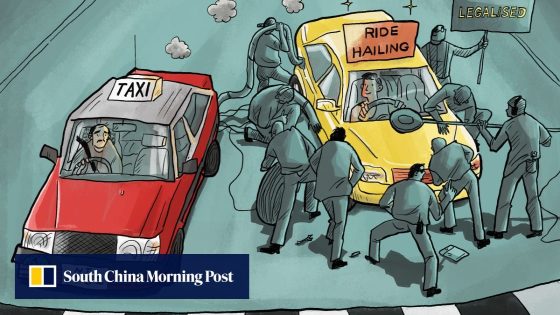Hong Kong’s ride-hailing firms are on the verge of a major transformation as they seek legal status after years of operating in a gray area. With Secretary for Transport and Logistics Mable Chan leading the charge for regulation, could this be the turning point for ride-hailing in the city?
- Hong Kong ride-hailing firms seek legalization.
- Mable Chan aims to regulate ride-hailing sector.
- Proposed regulations to ensure user safety.
- Taxi unions threaten strike against ride-hailing.
- Uber's popularity stemmed from poor taxi service.
- Multiple ride-hailing platforms operate in Hong Kong.
On February 14, 2025, the potential legalization of these services raises questions about the future of the taxi industry and the safety of commuters.
Hong Kong’s Ride-Hailing Revolution: What It Means for Commuters
Are commuters in Hong Kong ready for a new era of transportation? As the city prepares to regulate ride-hailing services, many are eager to see how this will enhance their travel experiences.
Impact of Regulation on the Taxi Industry and Ride-Hailing Services
The proposed regulations aim to create a fair playing field for both taxis and ride-hailing platforms. This could lead to better services for consumers but raises concerns for traditional cab drivers.
- Safety measures for users will be prioritized.
- Regulations may prevent monopolies among ride-hailing services.
- Taxi drivers are pushing back, threatening strikes for better protections.
- New players like Didi Chuxing are entering the market, increasing competition.
Understanding the Challenges for Ride-Hailing Companies
Legalizing ride-hailing in Hong Kong comes with challenges. How will authorities balance the needs of traditional taxi drivers with those of new ride-hailing services? The ongoing taxi union opposition highlights the tension in the market.
Future Prospects for Ride-Hailing in Hong Kong
As the framework for regulation is set to be discussed, the future of ride-hailing looks promising. What innovations could emerge from a regulated environment? Companies like Uber and Didi Chuxing are likely to adapt quickly to new rules, offering better services to commuters.
In conclusion, the legalization of ride-hailing in Hong Kong represents a significant shift in the transportation landscape. With potential benefits for consumers and challenges for traditional taxi services, this development could serve as a model for other cities worldwide.




























